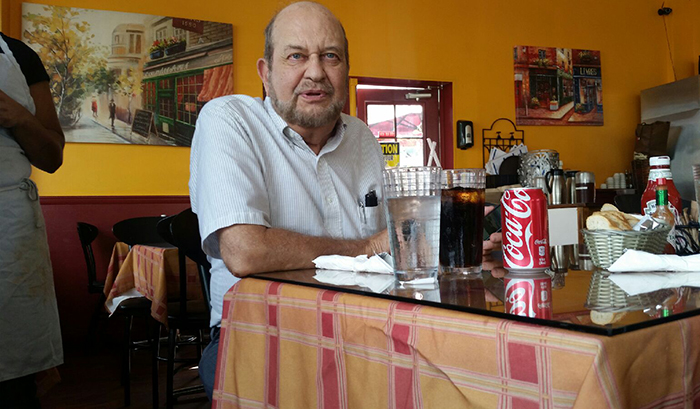A few months ago, it seemed the November election might produce the silliest silly season in modern California politics. The essential good sense of shoppers around the state appears to have prevented that.
Shoppers at big box stores like Home Depot, Best Buy, Target, Walmart and Costco provide the bulk of voter signatures needed to qualify initiatives, referenda and recalls for the ballot. Sometimes there is a fear these shopper/voters will sign anything merely to get the petition carriers near the entrances out of their hair.
Plenty of silly measures were proposed for this fall. Virtually none made it through the process of gathering 365,885 valid signatures, even though that is the lowest total required in many years, the result of a very small turnout in the 2014 election.
One would have required display of the California state flag in the position of first honor when both it and the American flag are on view at public buildings from schools to stadia. Not only would this be offensive to many, but it would have no discernible benefits.
Another plan was to ban political contributions of all kinds from out of state donors to most campaigns in California. Federal offices like U.S. senator and members of Congress would have been exempt. Likewise, a plan to change the title of California’s chief executive from governor to president didn’t come close to getting the signatures needed to put it on the ballot.
Neither did a proposal to demand that anyone proposing a ballot measure advocating the killing of gays and/or lesbians (there was just such a proposal; it also went nowhere) would have to attend sensitivity training or donate money to a pro-gay or -lesbian organization.
A plan to multiply membership of the Legislature by about 100 also failed, but might be back. Another failure aimed to ban sales of shrimp and other shellfish. This one carried a $666,000 fine and/or a prison sentence for each sale.
Take Some Proposals Seriously
Also not making the ballot were a couple of referenda, measures aiming to reverse new laws passed by the Legislature and signed by the governor (still not California’s president). One would have allowed anyone to avoid getting children vaccinated simply by stating that personal beliefs forbid it. Another would have reversed the new (and not yet in effect) law allowing doctors to administer lethal doses of drugs to terminally ill patients. A move to recall Democratic state Sen. Richard Pan of Sacramento for authoring the current law requiring almost universal vaccination of schoolchildren failed, too.
Some ideas would have had to be taken seriously by their opponents, who in a few cases were ready to spend millions of dollars fighting them off. Others simply would have cluttered a ballot that already figures to be the longest ever.
Their absence leaves voters to consider what is likely to be dozens of very serious ideas, most with significant consequences.
For example, three more measures to boost taxes. Two aim to extend the levies of the 2012 Prop. 30, which mostly upped taxes on the wealthy. A third would surcharge tax bills for properties officially valued at $3 million or more, the new money going to anti-poverty programs. That’s intended as a sort of Robin Hood system.
Tax cuts are likely to be present. A plan to lift the minimum wage to $15 an hour by 2021 might make the ballot.
So could a plan to increase the time of service public school teachers need to earn tenure from two years to five, and another limiting the pay of non-profit hospital executives to the same level as what the President of the United States earns – now $450,000 a year.
There are more, with four measures already assured ballot spots, 73 others now authorized to collect signatures and almost two dozen awaiting official naming by the attorney general. The only one without wide implications is one to require use of condoms in all movie sexual intercourse.
That’s all silly enough – but it could have been much worse.
Mr. Elias may be contacted at tdelias@aol.com. His book, “The Burzynski Breakthrough, The Most Promising Cancer Treatment and the Government’s Campaign to Squelch It,” is now available in a soft cover fourth edition. For more Elias columns, visit www.californiafocus.net








